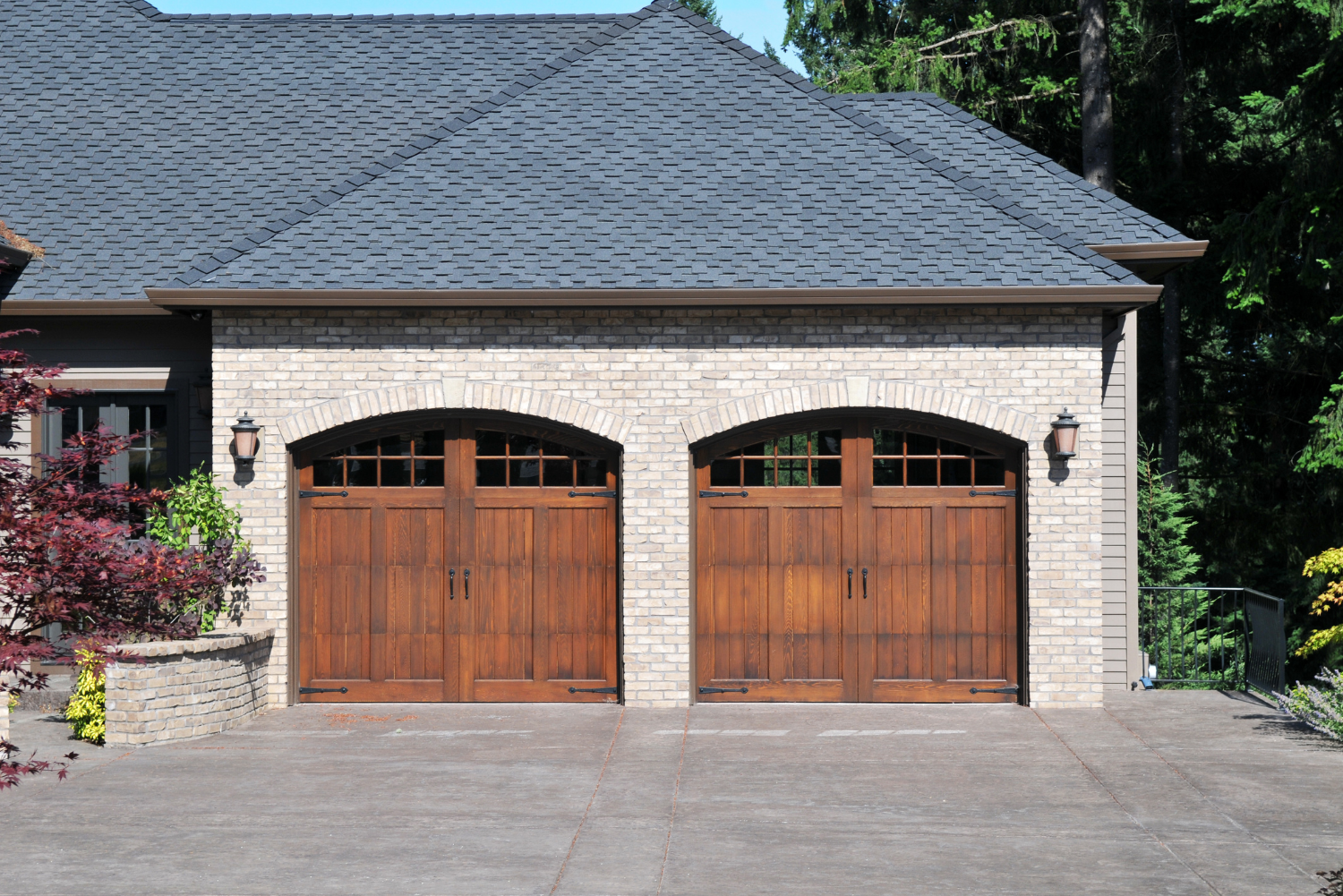
How to Decide on Your Garage Door Material
Key Takeaways
1. Choosing the right garage door material impacts security, energy efficiency, and aesthetics, with steel and wood being the most common options for different needs.
2. Factors like climate, durability, maintenance, and cost play a major role in determining whether materials like fiberglass, aluminum, or wood composite are more suitable for your region.
3. Raynor Door Authority helps homeowners select the ideal garage door by balancing performance, design, and budget for long-term satisfaction.
Factors to Consider When Choosing the Right Garage Door Material
Choosing the right garage door material impacts your home’s security, efficiency, and style. The material you select should match your climate, maintenance preferences, budget, and design goals.
With several options available, understanding the key factors makes it easier to pick the right one for your needs.
Here are the main factors to consider when selecting garage door materials:
- Durability. Consider how well the material stands up to weather, impacts, and time. Steel and wood are strong, but wood may warp without proper care.
- Maintenance. Wood requires regular painting or sealing. Steel and aluminum need less upkeep but may still require occasional repairs.
- Insulation. Check the R-value to understand insulation performance. Insulated doors are important for energy efficiency, especially if the garage is attached to your home.
- Climate Suitability. Aluminum and fiberglass resist rust and humidity. Wood performs better in dry environments but struggles in extreme weather.
- Cost. Steel is often the most cost-effective. Wood and custom materials tend to be more expensive both upfront and over time.
- Aesthetics. Choose a material that complements your home’s exterior. Wood offers a traditional look. Steel and aluminum offer more modern styles.
- Weight. Heavier doors (like solid wood) may require stronger openers and more maintenance. Lightweight materials like aluminum put less strain on hardware.
- Noise. Heavier and insulated doors typically operate more quietly. Hollow metal doors may create more noise during use.
- Environmental Impact. Some materials are recyclable or made from sustainable sources. This could be a factor if eco-friendliness is a priority.
Choosing a garage door material isn’t just about looks. It affects how much time and money you’ll spend maintaining it, how well it holds up, and how efficient your home stays. Weigh all factors before making a final decision to ensure the best long-term value.
Common Types of Garage Door Materials and Their Best Uses
Garage doors are made from a range of materials, each with unique strengths, maintenance needs, and design appeal. The right choice depends on your climate, usage, and style preferences. Below are the most common types, along with what they’re best suited for.
1. Steel
Best for: Durability, low maintenance, and budget-friendly options.
Steel is the most popular material for residential garage doors. It’s strong, resists warping, and comes in a wide range of finishes and styles. Insulated steel doors offer good energy efficiency, especially for attached garages.
- Pros. Affordable, durable, low maintenance
- Cons. Can rust or dent without protective coating
2. Wood
Best for: Traditional or high-end curb appeal.
Wood offers a timeless and natural look that boosts property value. Common wood types include cedar, redwood, and mahogany. These doors can be customized in design and stain but require frequent upkeep.
- Pros. Customizable, visually appealing
- Cons. Expensive, high maintenance, prone to warping or rot
3. Aluminum
Best for: Modern designs and humid or coastal climates.
Aluminum is lightweight and naturally resistant to rust, making it ideal for areas with salty air. It’s commonly used for oversized garage doors due to its light weight.
- Pros. Rust-resistant, lightweight
- Cons. Dents easily, lower insulation
4. Fiberglass
Best for: Coastal regions with salt exposure.
Fiberglass mimics the appearance of wood without the same maintenance needs. It’s resistant to moisture and corrosion but less effective in cold weather where it can become brittle.
- Pros. Resistant to rust and salt air, lightweight
- Cons. Prone to fading, can crack in extreme cold
5. Vinyl
Best for: Families with kids or garages exposed to frequent impact.
Vinyl doors are highly durable and dent-resistant. They hold up well in wet environments and require very little maintenance, but they have limited style and color options.
- Pros. Durable, low maintenance
- Cons. Not ideal for very cold climates, limited customization
6. Wood Composite
Best for: A wood-like look with better durability.
Made from recycled wood fibers and resins, wood composite doors combine the look of wood with better resistance to moisture and insects. They also tend to be more affordable than real wood.
- Pros. Eco-friendly, less maintenance than solid wood
- Cons. Still heavier than steel or vinyl, mid-range price
Best Garage Door Materials for Harsh Climates
When dealing with harsh climates, garage door material choice becomes critical. The right material helps resist damage from extreme temperatures, humidity, or salt exposure, while also protecting your garage’s interior from the elements.
Some materials handle weather better than others. For cold climates, insulated steel doors are the top choice due to their strength and high thermal resistance. In coastal or humid areas, aluminum and fiberglass resist rust and corrosion, making them more reliable over time.
Here are the best garage door materials based on climate type:
- Cold or Snowy Climates
- Best option: Insulated steel
- Why: Offers excellent thermal efficiency and resists warping from moisture and freeze-thaw cycles.
- Best option: Insulated steel
- Hot or Dry Climates
- Best option: Wood composite
- Why: Handles heat well without drying or cracking like real wood. Minimal expansion or contraction.
- Best option: Wood composite
- Humid or Rainy Climates
- Best option: Fiberglass or aluminum
- Why: These resist moisture, rust, and mold growth. Aluminum requires a protective finish to prevent oxidation.
- Best option: Fiberglass or aluminum
- Coastal or Salt-Air Environments
- Best option: Fiberglass
- Why: It doesn’t corrode and handles salt exposure better than metal.
- Best option: Fiberglass
Choosing a weather-appropriate garage door material reduces long-term repairs and increases performance. Always look for weather-sealing, quality insulation, and finishes designed for your region.
Find the Right Garage Door Material for Your Home
Choosing the right garage door material affects your home’s security, energy efficiency, and overall curb appeal. Whether you’re leaning toward the timeless look of wood or the low-maintenance strength of steel, the material you select has long-term consequences on cost, durability, and upkeep.
At Raynor Door Authority, we help you weigh the pros and cons of each option based on your home’s needs and your local climate. From budget-friendly steel to beautifully crafted wood, we offer high-quality garage doors that are built to last.
Next Steps:
- Identify your climate and insulation needs to narrow down the best materials.
- Consider your budget, maintenance preferences, and design style.
- Contact Raynor Door Authority to explore your options and get expert help selecting the perfect door.
Don’t settle for a one-size-fits-all solution. Let us help you find the garage door that fits your life and your home.





